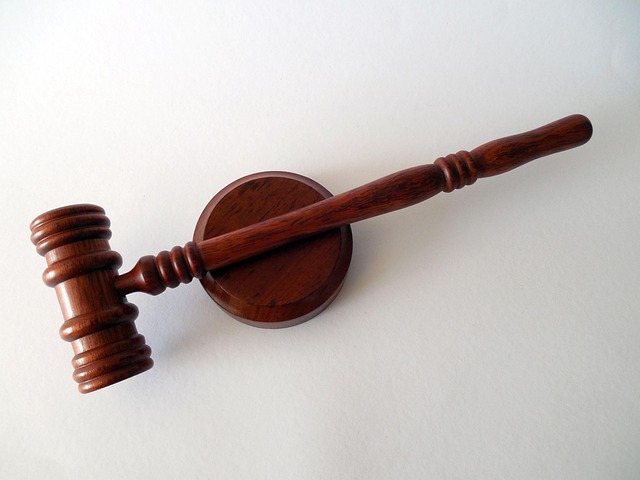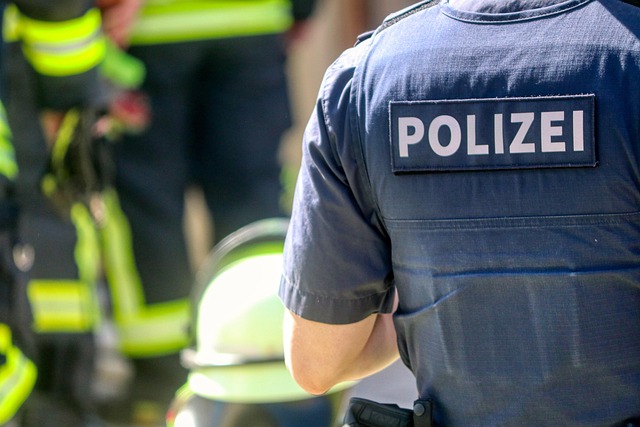C-Level investigations into financial misconduct and fraud demand a delicate balance between evidence collection and safeguarding executive rights. Legal professionals have developed sophisticated strategies to navigate these complex cases, prioritizing due process and fairness while avoiding indictment. This involves robust fact-finding, unbiased expert witnesses, strategic defense planning, and strict adherence to evidentiary rules to protect defendants' rights during trial, ultimately enhancing the chance of favorable outcomes in high-stakes cases. Advanced data analysis, expert consultations, and meticulous investigative techniques contribute to successful defense strategies.
“In the intricate world of legal strategy, C-Level Investigations stand as a game-changer. This comprehensive overview explores the art and science of these high-stakes inquiries, especially in the context of protecting defendant rights during trial. From understanding the fundamentals to delving into key considerations, strategies for fairness, and real-world case studies, this article offers an in-depth look at how strategic investigations can lead to successful defenses. Discover the nuances and importance of C-Level Investigations in safeguarding legal principles.”
- Understanding C-Level Investigations: A Comprehensive Overview
- The Importance of Protecting Defendant Rights During Trial
- Key Considerations for Launching Effective C-Level Investigations
- Strategies to Ensure Fairness and Accuracy in Legal Proceedings
- Case Studies: Successful Defense Through Strategic Investigation Techniques
Understanding C-Level Investigations: A Comprehensive Overview

C-Level Investigations refer to high-level inquiries into individuals or entities at the executive level, often within corporations or government bodies. These investigations are complex and require meticulous attention to detail due to their sensitivity and potential impact on significant businesses and personalities. The primary goal is to uncover truths related to various allegations, including financial misconduct, fraud, or breaches of ethical standards.
Understanding these investigations involves grasping the intricate balance between uncovering evidence and protecting defendant rights during trial. With an unprecedented track record in white-collar and economic crimes cases, legal professionals have honed strategies to navigate these labyrinthine proceedings. By employing careful tactics, they aim to avoid indictment while ensuring justice is served, marking a significant shift in how such matters are handled.
The Importance of Protecting Defendant Rights During Trial

In any legal investigation, especially at the C-Level, safeguarding defendant rights is paramount to ensuring a fair and just outcome. This includes protecting their privacy, maintaining the presumption of innocence, and ensuring due process throughout all stages of the investigative and enforcement process. Respecting these rights not only upholds the integrity of the justice system but also fosters trust among corporate and individual clients, encouraging cooperation and transparency.
A balanced approach that focuses on both investigating wrongdoings and protecting defendant rights is crucial in avoiding indictment and potential reputational damage. By prioritizing these rights, legal professionals can navigate complex cases effectively, gathering evidence responsibly while mitigating risks for both the accused and the organization they represent.
Key Considerations for Launching Effective C-Level Investigations

When launching investigations at the C-level, a delicate balance must be struck between thorough inquiry and respect for individual rights. Protecting defendant rights during trial is paramount, especially when dealing with sensitive matters such as white collar and economic crimes. A strategic approach should include careful consideration of due process, ensuring every step aligns with legal frameworks and ethical standards.
The white collar defense strategy must be tailored to the specific circumstances while prioritizing a fair and just outcome. This involves meticulous document review, witness interviews, and a comprehensive analysis of evidence to build a robust defense. It’s crucial to engage experienced professionals who can navigate complex legal landscapes, ensuring that rights are not only protected but also that any allegations are rigorously scrutinized.
Strategies to Ensure Fairness and Accuracy in Legal Proceedings

Ensuring fairness and accuracy in legal proceedings is paramount when investigating C-Level cases, especially high-stakes scenarios where lives and careers hang in the balance. Strategically employing robust fact-finding methods, unbiased expert witnesses, and strict adherence to evidentiary rules are key to protecting defendant rights during trial. By minimizing the risk of procedural errors or bias, these measures help avoid indictment and work towards achieving a complete dismissal of all charges when appropriate.
Case Studies: Successful Defense Through Strategic Investigation Techniques

In the realm of legal strategy, strategic investigation techniques have proven to be instrumental in Protecting Defendant Rights During Trial. Case studies illustrate that meticulous and well-planned investigations can lead to achieving extraordinary results for defendants facing challenging charges. By employing innovative methodologies across all stages of the investigative and enforcement process, legal teams are able to gather compelling evidence, identify weaknesses in prosecution cases, and ultimately secure winning challenging defense verdicts.
Successful defenses often hinge on uncovering hidden facts and presenting them effectively. These investigations require a deep understanding of the law and the ability to navigate complex factual scenarios. Through thorough fact-finding, expert witness consultation, and sophisticated data analysis, legal professionals can craft compelling narratives that sway juries and judges in their clients’ favor. This approach not only strengthens defense strategies but also ensures fairness and accuracy throughout the legal process.
C-Level investigations are critical in ensuring fairness and accuracy in legal proceedings, especially when protecting defendant rights during trial. By understanding the intricacies of these investigations, considering key strategies for effectiveness, and learning from successful case studies, organizations can navigate complex scenarios with confidence. Implementing these practices not only strengthens defenses but also underscores a commitment to due process and justice.






